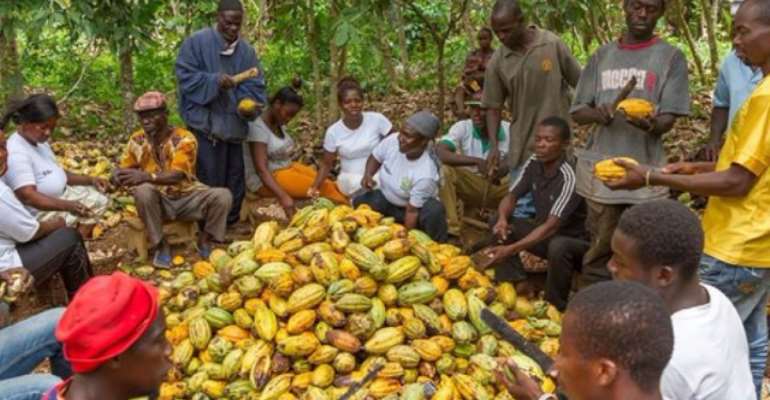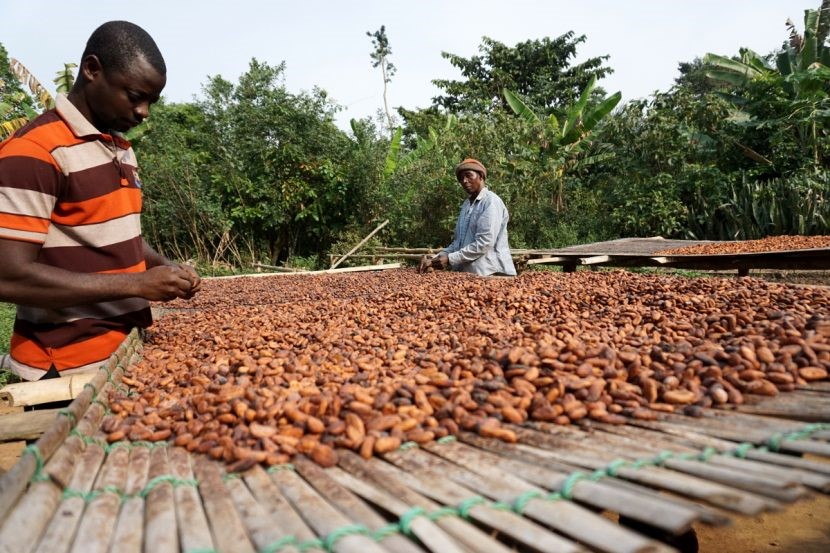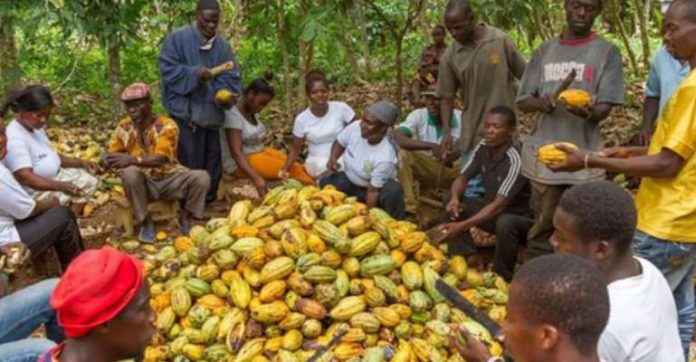
The General Agricultural Workers Union (GAWU) is calling on government to introduce bold and targeted policies under the 24-hour economy initiative to encourage greater youth participation in cocoa processing. The union warns that without urgent intervention, Ghana’s cocoa industry—the backbone of the economy—faces an uncertain future as young people abandon cocoa farming and the ageing farmer population nears retirement.
In parts of the Bono Region, the trend is already evident. Musah Babah, a 30-year-old former cocoa farmer, says he quit the industry due to lack of fertiliser, limited access to credit, and low farmgate prices.
“When it comes to cocoa farming, I don’t think many people will venture into it. Harvesting even five bags is a major challenge. The government must provide more support. If I had the chance to oversee the sector, I would raise cocoa prices. At the moment, I earn only about GHS 1,000 a month, which is far too little. I’m not satisfied with the current state of the industry,” he lamented.
For Stephen Billi, a veteran cocoa farmer with 25 years of experience, the problem is generational. Despite his dedication, his children show little interest in continuing the family tradition.
“None of my family members are interested in cocoa farming. Whenever I bring it up, they don’t pay much attention. Yet cocoa farming is important; it sustains livelihoods and provides reliable income,” he explained.

GAWU believes that the future of cocoa goes beyond farming. General Secretary Andrews Addoquaye emphasized that greater opportunities lie in processing, where value addition can generate jobs, boost exports, and attract young entrepreneurs.
“We must decide what percentage of our cocoa we want to process locally and make those opportunities available to young people. Train them. Be intentional about including them in the 24-hour economy. I know young cocoa farmers who are already producing their own chocolate using about 70 percent raw beans. These are healthy, innovative products. We must identify and support such people,” he said.
Currently, Ghana processes only about 20–25% of its annual cocoa output, with the bulk exported as raw beans. Analysts say that expanding domestic processing could significantly increase earnings, create value chain jobs, and reduce the industry’s dependence on volatile international prices.
GAWU is therefore urging government to roll out policy incentives such as tax reliefs, access to affordable credit, guaranteed markets, and targeted training programs for youth-led cocoa processing businesses. Such interventions, the union argues, will not only sustain the cocoa industry but also ensure its transformation into a modern, youth-driven sector under the 24-hour economy framework.
























































![[FREE FREE MONEY] Predict and Win a Guaranteed GH¢200 From Us EVERY WEEK](https://wordpress.ghanatalksradio.com/wp-content/uploads/2022/02/Predict-and-Win-Final-09-03-2021-218x150.jpg)
![[Predict & Win – 8th/Oct.] WIN A Guaranteed ¢200 From Us This Week](https://wordpress.ghanatalksradio.com/wp-content/uploads/2021/10/maxresdefault-16-218x150.jpg)
![[Predict & Win – 2nd] WIN A Guaranteed ¢200 From Us This Week](https://wordpress.ghanatalksradio.com/wp-content/uploads/2021/09/maxresdefault-50-218x150.jpg)
![[Predict & Win – 25th] WIN A Guaranteed ¢200 From Us This Week](https://wordpress.ghanatalksradio.com/wp-content/uploads/2021/09/maxresdefault-36-218x150.jpg)
![[Predict & Win – 18th] WIN A Guaranteed ¢200 From Us This Week](https://wordpress.ghanatalksradio.com/wp-content/uploads/2021/09/maxresdefault-23-218x150.jpg)









![[National cathedral] See full list of churches that have contributed since 2018](https://wordpress.ghanatalksradio.com/wp-content/uploads/2020/09/Ghana-National-Cathedral-GhanaTalksRadio-100x70.jpg)



